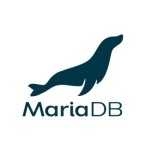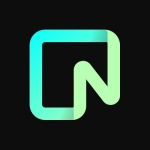Our deployment was only used within the organization. We didn't make it available publically.
The most valuable feature is the ability to do multiple-read and single-write. These are the kinds of features that we were interested in, and Aurora takes care of that natively.
We tried to set this up ourselves in RDS and although it's more expensive, you don't have to tweak it as much. There is a lot less maintenance involves, which means there is a lot less user input.
Since leaving the previous organization, I have read that they have made Aurora faster. It was about five times quicker than before, which is quite impressive.
I know that because we were using Aurora, we didn't have to use a Redis cache, which saved us some time.
It was easier to use in terms of a technical perspective, we didn't need anyone to figure out how to write, multiple read, and different locations, with a Redis cache on top of that.
We didn't have to configure it that way; we could have one instance. It was more usable that way.
At the time we were using it, Aurora was supposed to be five times faster, but we didn't see that.
Aurora was supposed to be five times quicker, but we didn't see any evidence.
As I already stated, since leaving that organization, I was reading an article and noticed that they had enhanced Aurora and that it would be much quicker than before. I haven't tried it myself, but that's what I've heard.
In my experience, I didn't see the claimed speed, and when you factor in the cost, or the extra cost of Aurora compared to a normal database, it didn't justify the cost from a performance standpoint, but it did justify the cost because we didn't have to have multiple instances, Redis caches, and other things like that.
The pricing could improve. It should be reduced.
I have used Amazon Aurora for two or three years.
Amazon Aurora is a stable solution.
I would rate the stability of this solution a ten out of ten.
Amazon Aurora is a scalable product. It is easy to scale.
You don't have to monitor or manage it because it's totally handled by AWS and will scale as your data grows.
We have approximately 600 users in our organization.
We have never contacted or used technical support from Amazon.
We are familiar with AWS. We used EKS to store our keys. We used RDS, Aurora, and Load Balancer. We have used Lambda functions, as well as the container.
The initial setup was easy.
It is quite expensive.
I would rate the pricing a two out of five.
I was responsible for introducing Salesforce to my previous company.
Salesforce is a CRM tool and is something I am fairly familiar with. Power Apps is something my current employer, evaluating.
We are not looking; we are a Microsoft partner, and we are interested in how Power Apps may be connected from a consulting standpoint. We are also developing an in-house low-code platform.
We are not getting any traction on that, and wonder if we can compare this to items that are already on the market, should we continue development on this or offer something like Power Apps, OutSystems, or something else to our clients?
I would recommend it for enterprises or corporations, but not for small-scale use.
I would recommend it in situations when stability and speed are important.
For large data sets, not for medium or small data sets or volumes of data If you have a lot of data, you should probably go with Aurora. It is not something I would recommend to anybody else. It is not worth the price.
In my previous company, we had a partnership with Amazon.
I would rate Amazon Aurora a seven out of ten.















